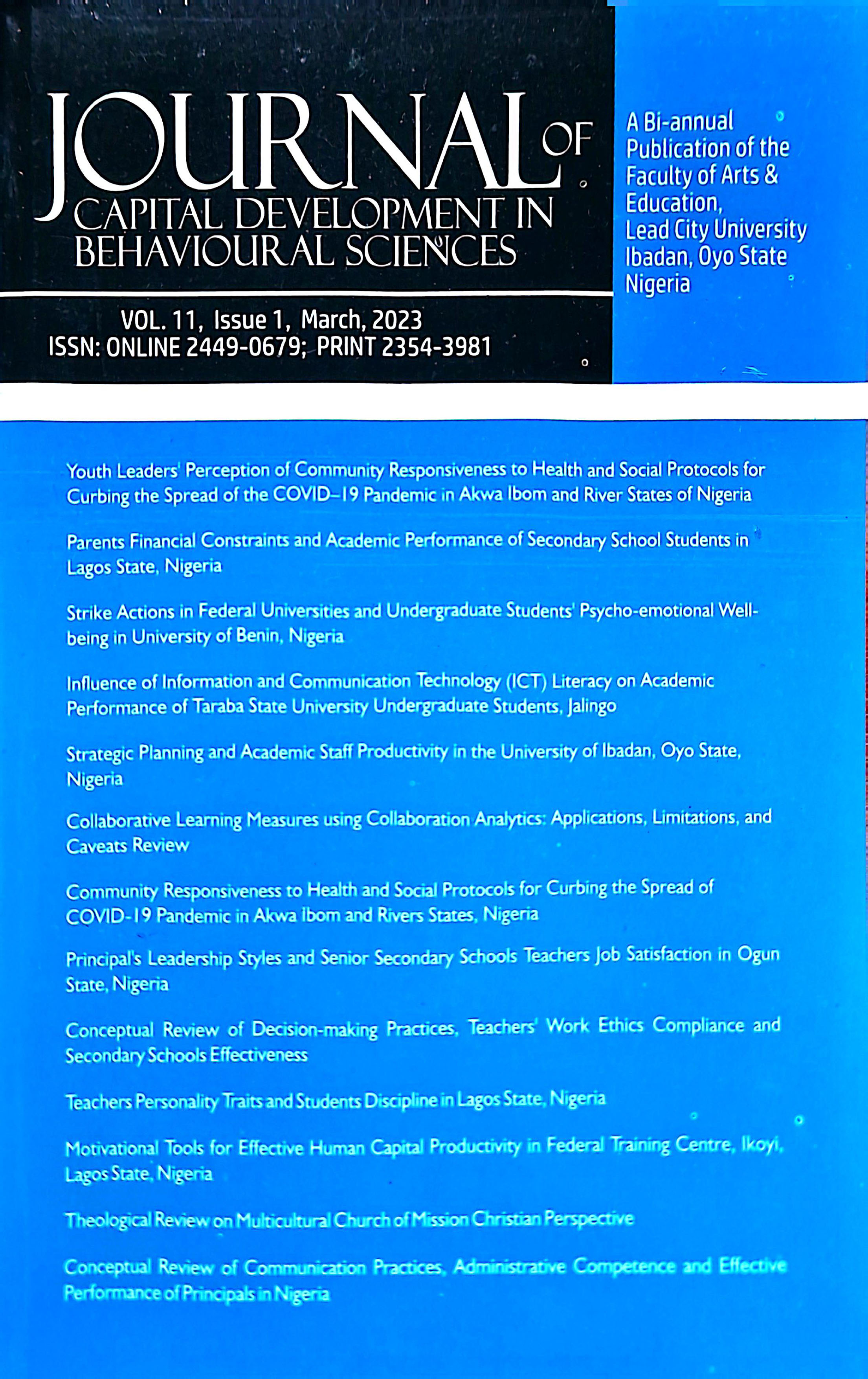Conceptual Review of Decision-making Practices, Teachers’ Work Ethics Compliance and Secondary Schools Effectiveness
Keywords:
Code of conduct, Leadership, Decision-making practices, Teachers’ Involvement, Work ethics compliance, School effectivenessAbstract
The study examined the extent of teachers' compliance with work ethics and
decision-making procedures in public secondary schools. If efficient
instruction and service delivery are to be achieved in public secondary
schools, the results of the current study have significant implications for
effective school administration and management. The efficacy of the school
will increase when principals encourage high ethical leadership behaviour
through participatory decision-making on the part of the members. The
chances of having committed teachers who aid in achieving the goals of the
schools are increased by principals who apply sound ethical principles in
respecting the rights of their teachers, demonstrate professional competence
and responsibility, while fostering honesty and integrity in their professional
relationships with teachers, and demonstrate responsibility to schools,
families, communities, and society at large. This makes it necessary for
public secondary school principals to cultivate and uphold very high ethical
leadership behaviours while acting in their instructional leadership roles,
making decisions, carrying out their supervisory functions, communicating
and working collaboratively with teachers, and holding themselves accountable, in order to foster an environment that will encourage high levels
of teacher commitment. It was concluded that teachers who are deeply
committed to their jobs develop ethical values and conduct.

